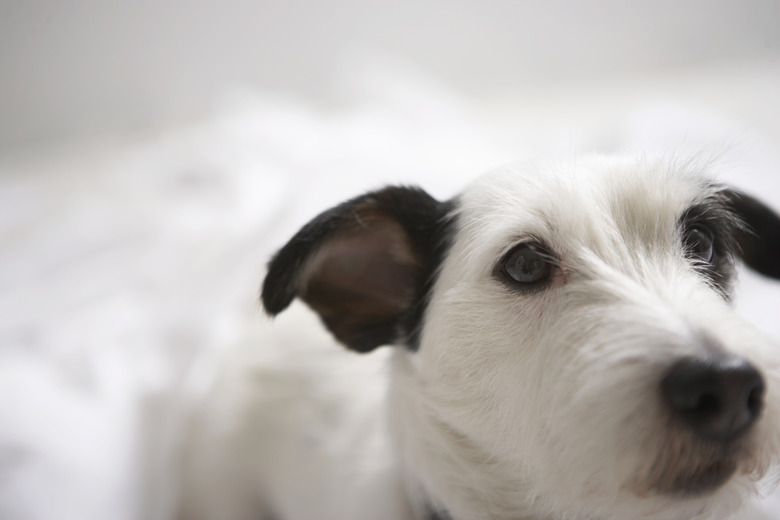How Soon Before Boarding Should My Dog Get A Bordetella Shot?
If your dog is going to be entering a kennel and you know he's never had a Bordetella inoculation — or that he hasn't had one in more than 6 months or so, take care of that no less than a week before his boarding appointment. Bordetella vaccines defend dogs against kennel cough, contagious bacterial or viral infection that lead to inflammation of the windpipes and voice boxes.
Bordetella Vaccine Basics
Bordetella Vaccine Basics
Kennel cough is a kind of bronchitis that has various causes, one of which is Bordetella bronchiseptica bacteria. Bordetella has an impact on dogs' respiratory systems. It can sometimes turn into pneumonia. It is generally not fatal, although there are exceptions.
Although Bordetella vaccines can minimize dogs' chances of catching kennel cough, they're not 100 percent successful. For one, other causes of kennel cough exist, including parainfluenza virus. Having received the Bordetella vaccination does decrease clinical signs of kennel cough, however. It also makes the recovery process faster.
Vaccine Administration
Vaccine Administration
Bordetella vaccines for canines are available in both intranasal and injectable forms. When dogs receive intranasal vaccines, they're given nose drops. Injectable vaccines are given to them below their skin via subcutaneous injections.
Puppies may receive intranasal vaccines against Bordetella as young as 3 weeks old and a followup dose between two and four weeks afterward. Puppies can receive injectable Bordetella vaccines between 6 and 8 weeks of age and boosters when they're 10 to 12 weeks old.
Canines generally need booster vaccines for Bordetella in intervals of six months to a year. Vets determine the exact necessary intervals according to each individual dog's risk of environmental exposure.
Boarding Preparation
Boarding Preparation
If your dog has never been administered a Bordetella vaccination, he should receive a single dose a minimum of one week before going to a boarding facility. If you plan on boarding your pet in a doggy hotel, make sure you're 100 percent aware of all of the facility's vaccination guidelines. This will give you ample time to ready your dog for boarding. Boarding facilities typically require confirmation of Bordetella vaccinations in dogs.
Kennel cough is highly infectious. Dogs can contract it via germs that linger on contaminated items — think toys and food bowls. They can contract it from physical contact with other canines. They can even get the disease from aerosols floating through the environment. Dogs frequently transmit kennel cough when they're in cramped and tight spaces that lack sufficient air circulation — this is why it's so common for dogs to get kennel cough from spending time at boarding facilities, grooming salons, dog shows, obedience courses and veterinary clinics. Unvaccinated and young canines are particularly vulnerable to contracting kennel cough.
Signs of Kennel Cough
Signs of Kennel Cough
Incessant dry coughing is a common indication of kennel cough in dogs. Conspicuous honking noises are not uncommon. Dogs with kennel cough may hack, cough and produce pale, foamy phlegm. Runny nose, appetite loss, exhaustion and fever are possible symptoms of kennel cough. Dogs with kennel cough often seem to be perfectly normal, bar the excessive coughing. Cases of kennel cough often resolve themselves without any outside assistance.
If you have any reason to think that your pooch has kennel cough, separate him from any other canines in your household without delay. Then promptly take him to the veterinarian for an evaluation.
Always check with your veterinarian before changing your pet's diet, medication, or physical activity routines. This information is not a substitute for a vet's opinion.
